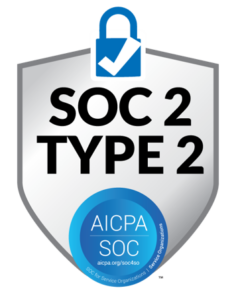Welcome to 2021, the year of the candidate (and no, we do not mean the Canadian election). With 2020 being a year of extensive lay-offs due to the pandemic, it might have come as a surprise how difficult it is to find the right candidate this year. But with the economy bouncing back as COVID-19 restrictions are lifted, we are seeing an influx in available jobs – more so than there are available candidates.
According to a Global News article, Economics Professor at the University of Waterloo, Mikal Skuterud, says that “there are more job postings available … than there are workers willing to fill those vacancies.” With companies working to catch up on their 2020 hiring goals, and refill positions or grow their company further in the post-pandemic economy, we are seeing what is often referred to as a ‘Candidate Market,’ and the need to funnel through candidates more effectively and at a faster rate. Not only that, but we also need to be sure we are upkeeping our DEI initiatives at the same time.
More Vacancies, Less Talent
A CareerArc 2021 Future of Recruiting Study says that 76 per cent of companies have said their hiring practices will exceed those prior to the pandemic. Furthermore, according to a Robert Half poll of 800 senior managers at Canadian companies, 43 per cent of companies expect to add new positions, and another 54 per cent intend to fill vacant roles or re-hire employees that were laid off due to the pandemic.
Global News reports that experts, such as Julie Labrie, president of BlueSky Personnel Solutions, have recognized that companies are taking as long as three or four months to hire the right candidate on for a role, which makes finding the right candidate even more difficult.
A big concern when considering the length of time it takes to find a candidate is that there are more opportunities for candidates right now.
Companies have had to revamp their hiring practices to add more onboarding incentives to entice talent. According to a Forbes article, “it’s common to have final candidates with multiple offers, or passive candidates who, within the span of a week, become very active in several processes.” Coupled with more financial compensation, Forbes further reports that this has made it even more difficult to bring on candidates.
Time is no longer a luxury in the recruitment process. With candidates perusing more opportunities, companies need to reexamine their hiring practices and restructure them in a way that supports a more streamlined approach. The number of job vacancies is rising, and with fewer skilled talent available to fill those positions, and it taking longer to find the right candidate, it has become increasingly important to funnel candidates through the hiring process at a faster rate.
Speeding Up the Hiring Process with DEI in Mind
Forbes reports one way to combat the strain in the hiring market is to streamline recruiting practices. Having a well thought-out and smooth interview process can increase the speed at which you find the right talent for the position. We can think of several reasons why speeding up the process is beneficial, but perhaps one of the most convincing is offering top talent a job before they are enticed by the competition. We all want to have the best candidates in our organizations but losing them because of a slow recruitment process is not conducive to your company’s success.
AI-powered skills assessments are a great way to do this. By directing your candidates to these assessments, you can filter through more candidates faster.
Let’s talk about how this can make recruiting faster. By removing the interviewee from the equation, you offer candidates more flexibility in finishing their assessment. On top of that, you also remove the need for negotiation, because how they do on an AI-powered behavioural assessment is directly in line with their skillsets compared to the job.
Here at Knockri, we’ve seen companies reduce the average time to fill a position by 60 percent. With the time it currently takes to fill a position standing around three to four months, reducing this by 60 percent would make a significant difference in having an upper hand over your competitors.
In terms of DEI initiatives, what is more enticing than allowing your candidates the opportunity to represent their skills in an unbiased environment? Machine learning allows you to remove unconscious bias from the initial hiring stages and allows your candidate to show their skills without concern for the way they speak, look, their gender, race, ethnicity, or sexuality.
So, if you want the upper hand in discovering your next top talent, consider changing your recruitment process to be more inclusive and efficient. If you would like to learn more about how AI can help you improve your hiring practices and achieve your hiring goals, feel free to schedule a meeting with us by using the form below!



